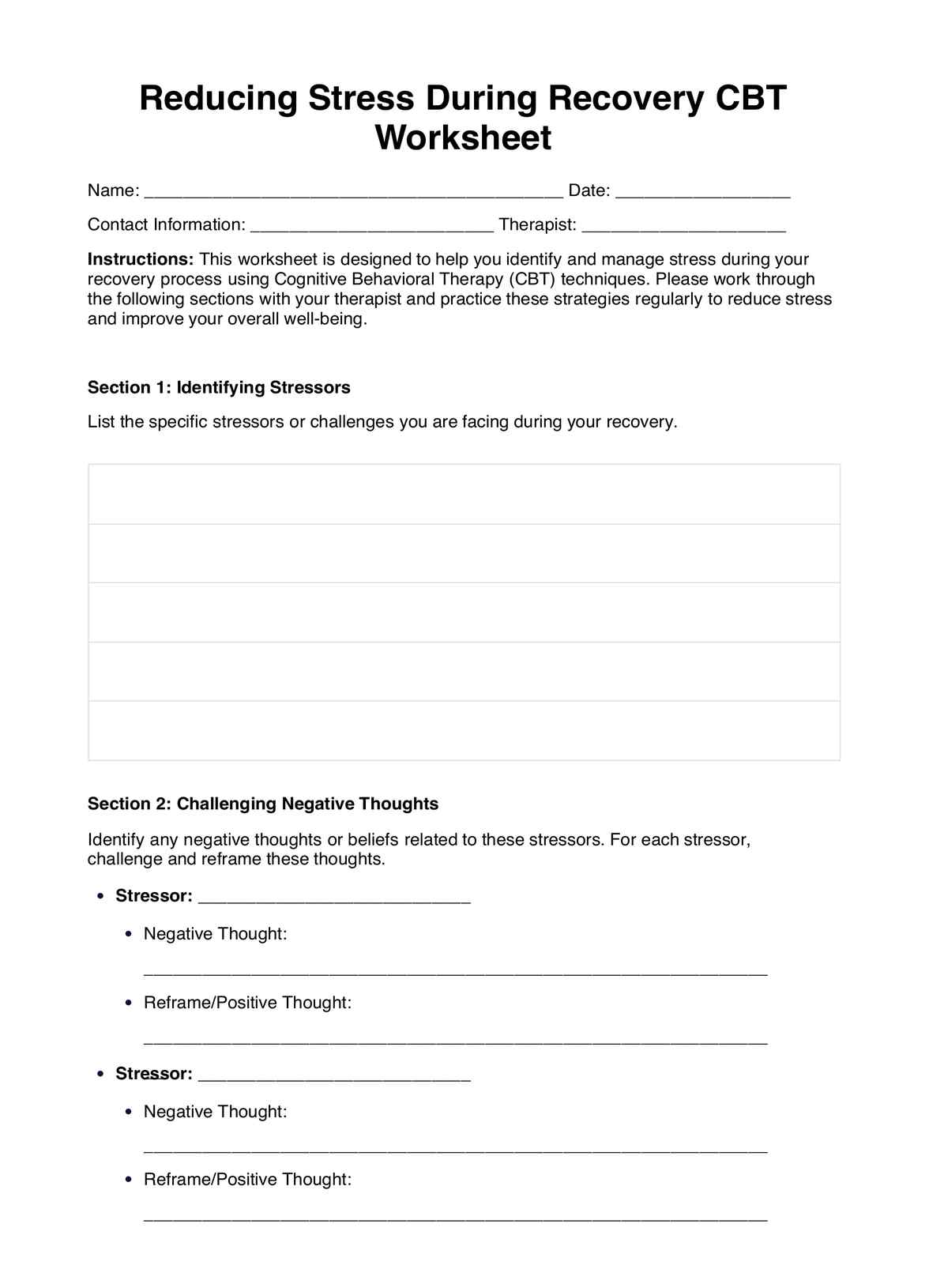This worksheet is designed for use by healthcare professionals, therapists, counselors, and their clients. It can be used in various healthcare settings and by individuals seeking to reduce stress during their recovery journey.

Reducing Stress During Recovery CBT Worksheet
Enhance your healthcare journey with our Reducing Stress During Recovery CBT Worksheet for effective stress management.
Use Template
Reducing Stress During Recovery CBT Worksheet Template
Commonly asked questions
Yes, the worksheet is customizable. Individuals can adapt it to their unique stressors, thought patterns, and recovery goals. It encourages personalization to ensure relevance and effectiveness.
The frequency of worksheet use can vary based on individual needs. It's often used regularly, such as weekly or bi-weekly, to track progress and adjust stress management strategies as necessary.
EHR and practice management software
Get started for free
*No credit card required
Free
$0/usd
Unlimited clients
Telehealth
1GB of storage
Client portal text
Automated billing and online payments











